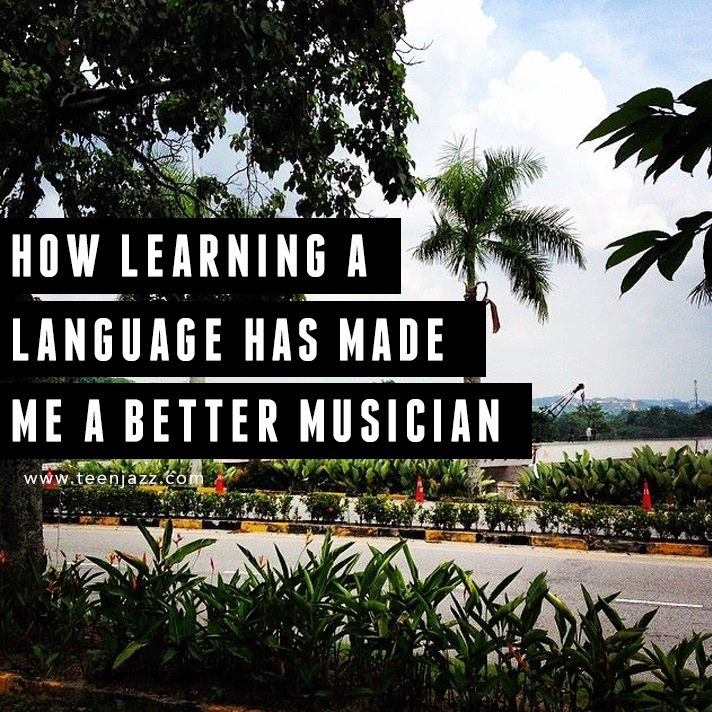I began studying languages around the same time I began to study music, and they are similar in as many ways as they are different.
The one way I’ve found that doing both has benefitted me the most, however, is in that I can take the study skills and habits I develop for one and apply it to the other.
There are four aspects of language learning: reading, writing, comprehension, and speaking. Depending on your goals with a language, your ability in each of the above four may vary. Perhaps your goal is to converse with family – in that case your comprehension and speaking will be at a higher level. Or maybe your goal is to read books or comics in their original language. In that case, your reading will be your strongest skill.
In a lot of ways, each of those four aspects exists within music as well.
We need to learn to listen. Listening allows us to perform and interact with other musicians. It also allows us to learn new things from what we hear around us.
We need to learn to speak. We need to find our voices on our instruments. We need to play a melody in a way that it becomes our own. We need to take the music vocabulary we’ve picked up and apply it to new contexts much like a language learner needs to take the words they’ve learned and construct them into sentences that reflect what they want to say.
We need to learn to read. To truly be successful as a musician, it helps to know how to read music. Or at the very least, chord charts.
We need to learn to write. Even if you don’t write your own music, there may come a time when you need write your own charts or arrangements. Having the ability to write music is another tool in your toolbox and will help you build a successful career.
But one can go beyond drawing comparisons between the skills required to be efficient in both music and language. In fact, you can directly apply the study habits and skills you learn with one to the other.
Here are just a few ways studying language has made me a better music learner:
1. There are two ways to listen.
You can listen passively – the music plays in the background, but you aren’t paying much attention to it. This type of listening is purely for enjoyment, maybe immersion, but it isn’t doing a lot for your ability as a musician. If you really want to make the most of the time you spend listening to music, you need to listen actively.
You need to sit down in front of your speakers, or tuck yourself into your chair with your headphones on and give the music 100% of your attention.
2. Watch movies with subtitles.
In this case, play along to records with transcriptions. When the material is too far above your level, it’s okay to cheat a bit and use a transcription as a guide to help you get where you want to be. Don’t rely on your “subtitles” or “transcriptions” for too long though, or you’ll find that you grow dependent upon them and stop using your ears.
3. A little bit everyday makes a big difference.
It’s better to study for a short period of time every day consistently than it is to practice for several hours one day and then not practice for the next few days afterwards. The consistent practice does a lot more for your endurance and ability as a player than binging and purging your practice do.
4. It’s always better with others.
Just like learning a language on your own has its limits, practicing your instrument alone in your room can also prevent you from reaching your full potential as a musician. It’s no fun to have a conversation with yourself when you’re learning a language. It’s also no fun to spend all your time working on music alone. It’s sometimes best to get out and perform with other musicians, getting experience on stage, interacting with other performers, and enjoying their companionship. It’s a win-win. You get to practice your instrument and make friends.
5. Writing things down can help you internalize them.
Taking a moment to write down the things you’re working on can help you better internalize the information. Just like teaching helps us understand what we’re doing better by the very nature of having to explain it, writing the information you’ve learned down helps you maintain it. You may take this as far as actually writing down the solo you transcribe, or it may be something as simple as just taking notes about what you’ve spent your practice session on so that you know where to pick things up the next time you sit down to work on your instrument. Try writing things down and keeping a practice journal!
So there you have it. What about you? What things do you study outside of music that have helped you become a better musician either directly or indirectly? I’d love to hear about it in the comments!
[template id=”182″]
